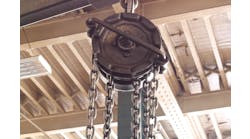| A |
ccording to ABI Research, most of the 137 companies that undertook to meet RFID mandates during 2004 did get involved with the technology to a greater or lesser degree. But many started small, allocating much lower budgets to the effort than the $23 million some analysts had predicted. In 2005 these companies are increasing their investment, to scale up and integrate RFID into their normal operations.
"We are seeing companies increase their RFID budgets three to five times this year compared to 2004," says Erik Michielsen, ABI Research's director of RFID research.
While many smaller RFID vendors were involved in these 2004 trials, feedback from end users tells ABI Research that in this phase of RFID implementation, these companies will more often return to their traditional technology partners for larger and more integrated solutions.
"In 2004 we saw many end-users working with smaller RFID companies," says Michielsen, "but the big-name relationships didn't come, because they weren't necessary. Now if companies are going to make a big investment in RFID tags and readers, they'll turn to the partners traditionally able to meet their needs, who can provide a global service. Many RFID companies can't do that."
That will be the case even if RFID is not central to these old partners' businesses, as in the cases of vendors like Avery Dennison, CCL, TI, Philips, LXE, Symbol, Zebra, and technology solution providers such as Cisco, IBM, Microsoft, Oracle, SAP and Sun.
Any lack of cutting-edge knowledge will be more than offsetin the minds of executives at companies like Johnson & Johnson, Campbell's, Gillette, Kimberley-Clark, Kellogg's, Kraft, Nestle Purina, Proctor & Gamble and Unilever by the comfort factor that large, familiar partners can provide.



